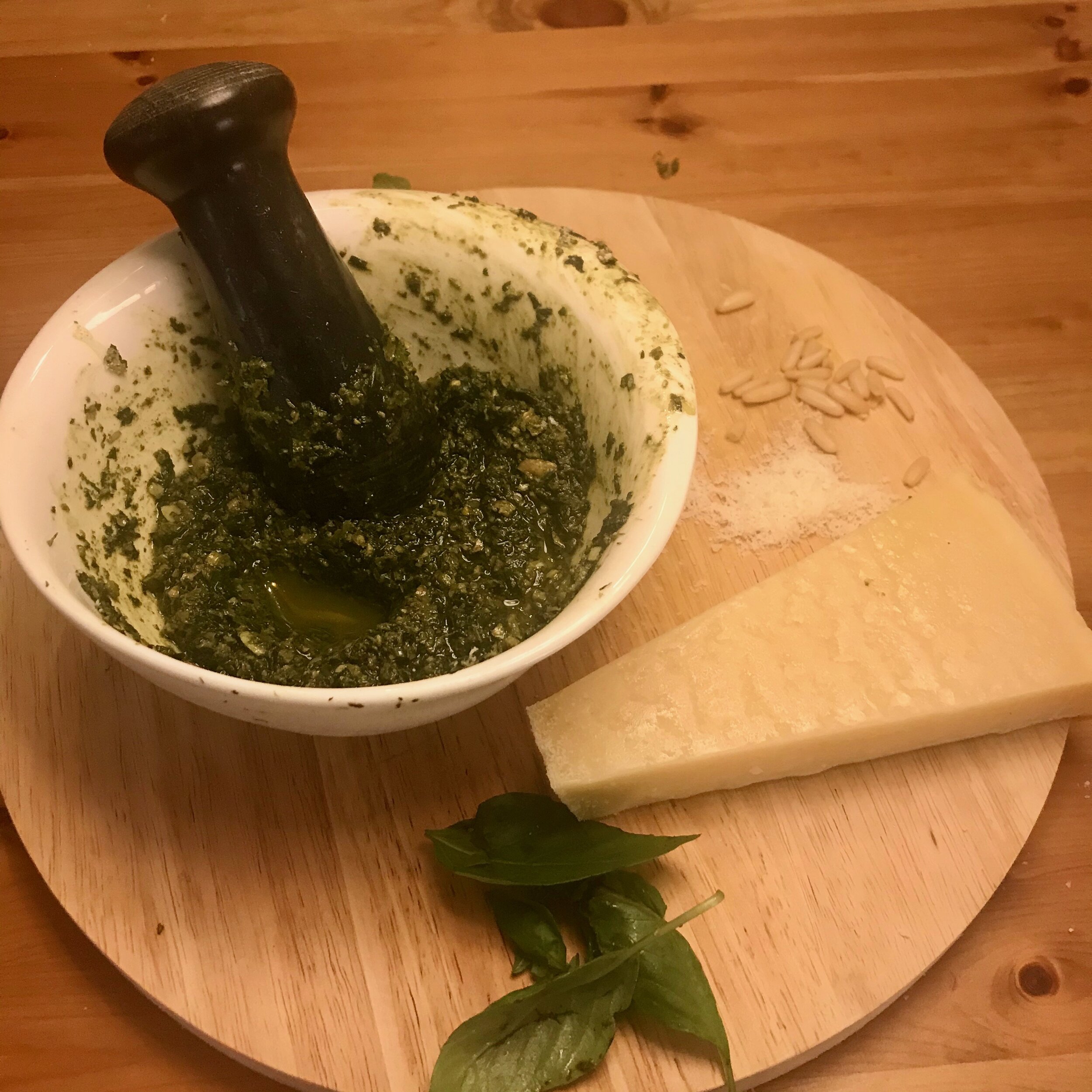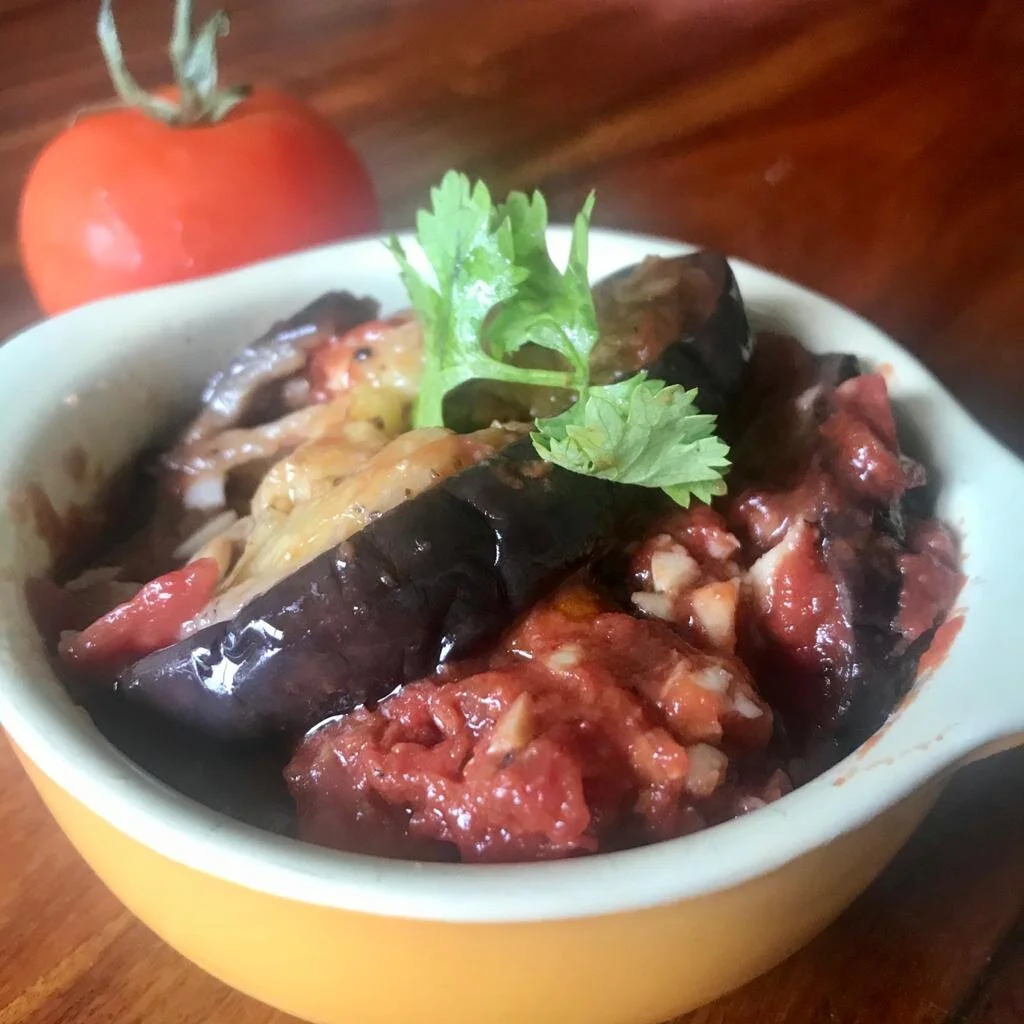THE OLIVE IT
“The wise store up choice food and olive oil, but fools gulp theirs down”
Today’s recipe comes from our friend and The Golden Harvest supporter, Jay Weissberg, director of Le Giornate del Cinema Muto , the world’s most important silent film festival. It takes place Oct. 3 to October 10 in Pordenone in the Italian province of Friuli, on the northern edge of the olive oil world.
The festival and the region’s food both make a person want to attend. This year, you can attend the festival online and travel around the world and back in time. It is a rare gift to see restored silent films, to witness how we have evolved on screen and as filmmakers and to enjoy the orchestral music that comes with silent film, including Cecil B. DeMille’s A Romance of the Redwoods (1917), Guofeng (China, 1935), nine films on travel and five films from the original comedy duo, Laurel and Hardy, before they were a duo.
We asked Jay for a Friuli recipe to enjoy during a screening. He picked pesto from his favorite restaurant, La Vecia Osteria del Moro in the eastern province of Friuli. The menu includes stewed snails, salami cooked in vinegar and many other unique regional dishes—all served with polenta.
“In Friuli, every main dish comes with polenta,” Jay explains. “And there's always frico on the menu, which is this dish of potatoes and cheese made in a skillet that's absolutely delish but sits on your stomach for days.” This recipe is just as it was given to Jay by Claudio Sartor, whose family owns La Vecia Osteria del Moro. It’s a lot of pesto so feel free to halve or quarter. We made it with the mortar and pestle and it was the best pesto we ever made—and so fragrant.
INGREDIENTS:
1kg of fresh basil leaves (the quality of basil really does make a difference)
4 cloves of garlic, crushed
80 gr of freshly toasted pine nuts (the nuts should be lightly toasted in a non-stick pan so they release their oils, which brings out the flavor)
1 stem of marjoram
400gr of grated Pecorino Romano cheese
Salt to taste
1.5 liters of extra-virgin olive oil (the Sartor family recommends using the delicately-flavored oil made in the province of Trieste, from olives grown on the Carso plateau)
PREPARATION:
The traditional way of making pesto is to use a stone mortar and pestle, as this is the best way of bringing out the flavors (and gently muddling the leaves, garlic, nuts and cheese brings all the wonderful aromas together). The consistency is meant to be uneven, not smooth. You can also make it in a food processor or with a blender, but add some ice cubes, as otherwise the delicate basil leaves are burned by the heated blades and they become bitter.
We love that Ollio is the same word for olive oil in Italian
The Golden Harvest Updates
We are really happy with the lovely, socially-distanced turnout from The Golden Harvest’s premier in the UAE @artforallUAE’s Theatre at the Mall of the Emirates, with Q & A hosted by the formidable Culturist , Hind Mezaina
Up next, the birthplace of filmmaker of The Golden Harvest, Chicago and the Chicago Palestine Film Festival, Oct. 11 at 8 pm but streaming online for 24 hours internationally. The festival has already begun, so check out the screenings. Then next up is the Toronto Food Film Festival with a Q & A with the filmmaker at 5.30 pm, on October 18, 2020, sponsored by The Spice Trader
We love the feedback from our screening at the Theatre at Mall of the Emirates
In the News
Olive season is getting close. So any olive oil you buy now is last year’s oil. Still good but good to have some good guidelines. Don’t buy the fakes! We recommend these tips from Bobby Parrish at Flav City
Fresh oil coming soon!
To read earlier Recipes and fun film and olive facts from The Olive It, click here.
THE OLIVE IT
THE OLIVE IT
Recipes and and News from The Golden Harvest
Today’s Recipe:
Tabouleh
“Bread and cheese are fine, but olive oil and bread are divine. ”
Today we think of one of the original olive countries, Lebanon, as it recovers from last week’s horrific blast. Some of Lebanon’s olive trees are even more ancient than its famed 2,000-year old cedar trees. Beside trees, a big part of Lebanon’s heritage is its cuisine. One of our favorite spots in Beirut is Souq Al Tayeb, founded by Kamal Mouzawak in 2004, which began as a weekly market to support small and organic farmers and evolved into an organization that has helped artisans make a living preserving local food traditions, worked for sustainability for Lebanon’s fragile agricultural environment; and offered women from diverse impoverished communities the chance for financial independence through the use of their cooking skills. You can support Souq El Tayeb’s farmers and cooks at this terrible time here,
Today’s recipe is tabouleh, made of the colors of the Lebanese flag. There is nothing like sitting on a veranda in Lebanon looking out at the mountains or the sea with a table of meze. And no meze table is complete without tabouli. Kamal Mouzawak considers himself a tabouleh expert—he even created National Tabouleh Day (July 3). This recipe is adapted from his book, Lebanese Home Cooking. Please don’t make him sad by committing the ultimate tabouleh sin: chopping the parsley in the food processor.
A Beirut Morning
INGREDIENTS
2 medium ripe tomatoes
2 T. (20g) fine grind bulgur
1/2 bunch mint
4 bunches of flat leaf parsley
1/2 bunch of scallions (spring onions)
1/4 tsp ground black pepper
Salt
Juice of 2 lemons
6 T. olive oil
Romaine lettuce leaves, white cabbage leaves, or fresh grape leaves for serving.
PREPARATION
Finely dice the tomatoes. Place them into a large bowl and add the bulgur. Stir so that the bulgur is well mixed with the tomatoes and is able to soak up their juices.
Very finely chop the mint and add this to the bowl. Very finely slice the parsley and add to the bowl, covering up the mint to help prevent it from turning black. Finely chop the spring onions, sprinkle with a bit of pepper and a bit of salt. Rub them a bit with the fingertips so that they soften. Add to the bowl. (DO NOT STIR)
Do not mix the tabouleh until ready to serve. Start mixing with a spoon and a hand, to be sure the tabouleh is well mixed. Add the lemon juice and olive oil. Season to taste with salt.
Note: Tabouleh should not be dry, but it should not be soupy either. Serve straight away with romaine, white cabbage, or fresh grape leaves.
UPDATES ON THE GOLDEN HARVEST
We are delighted that The Golden Harvest will screen on Friday, August 21 at 5 pm in Bergamo, Italy as part of the Food Film Festival. It will be an outdoor screening at Piazza Mascheroni. We are happy for Bergamo, which suffered so many losses this year, that it can still celebrate its bountiful cuisine and film. More details here:
In the News. Vamona Navelcar's house, Goa. By R. Benedito Ferrão
In the News
The Evolution of a Cuisine:
Lebanon’s neighbors are also dear to our heart. Here is a look at how the once varied Palestinian cuisine has come to be seen as chicken, rice and tomatoes ,, according to recent article in Israel’s Haartez newspaper,
Poetry in Anxious Times:
Listening to poetry can relax the mind while giving us pause to reflect on bigger questions. Thus, we celebrate today the podcast Golden Walkman Magazine. This issue features The Golden Harvest supporter R. Benedito Ferrão reading his poem, “Gecko,” the poignant search for home, and Dane Fogdall reading the wry “God Smoked a Cigarette” Listen here.









